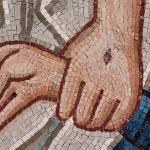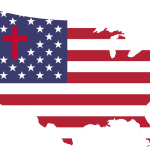“In these days of uncertainty, the evils of war and of economic and racial injustice threaten the very survival of the human race. Indeed we live in a day of grave crisis.” (p.Xiii, Strength To Love) These are the words that begin Martin Luther King’s work Strength To Love. Although these words were published in 1963 it is certainly not a stretch to note their relevance to the state of current socio-political issues in the United States. Whether it is President Barack Obama’s recent declaration to send troops back to Iraq, the continued fight for socio-economic equality throughout the states, or the continued injustices that take place in cities like Ferguson throughout the country, we do indeed live in turbulent times. Furthermore at stake here is the survival of the human fabric. How can the Christian community address these dire circumstances? What response can theology offer up to these concerns? Although there is no comprehensive answer to this question Dr. Martin Luther King can offer some insight on the ways theology can address current crisis such as the racial injustices that happen far too often in our world today. Ultimately the solution lies in showing the love of Christ to all of the communities to which we belong. I believe to create a theopolitics of love one must understand the true nature of their citizenship in the world, incorporate the capacity for altruism, and become aware of humanities shortcomings.
As a member of the Christian community it can become difficult to navigate the world of both the sacred and the secular. Christians belong to both of these worlds. King notes: “Every true Christian is a citizen of two worlds, the world of time and the world of eternity. We are, paradoxically, in the world and yet not of the world” (p.12). Thus we are citizens of both the temporal world that we live in on Earth as well as our heavenly citizenship to live eternity with God. This is complicated because we have citizenships in both of these worlds at the same time. We are thus not allowed neglected the concerns of one in favor of the other and vice versa. This can be interpreted that because we have dual citizenship, we are also have dual responsibilities that are not mutually exclusive. That is to say, our responsibility on the temporal world is to bring about the peace that we seek from our eternal union with God. This task can only be fulfilled through the fight for justice for all of God’s creation.
Read the rest here















